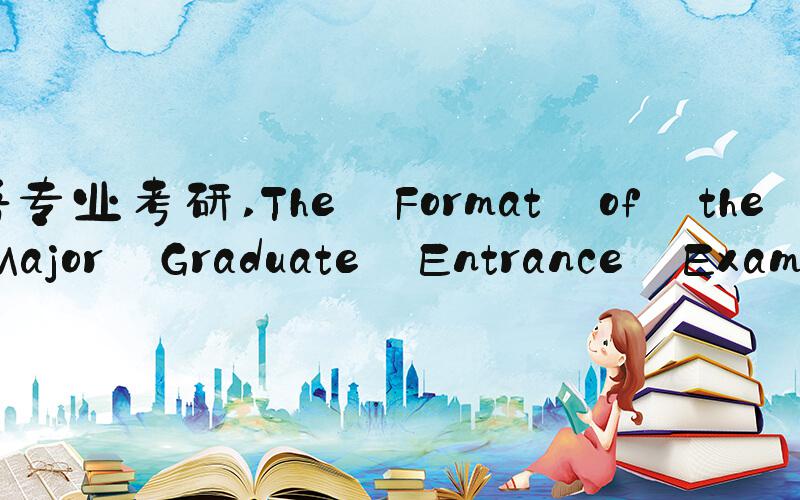
Introduction
The English major postgraduate entrance examination, also known as the English graduate entrance examination, is a national unified examination for those who want to continue their studies in English at the graduate level. It is a highly competitive exam that requires strong English language skills, comprehensive knowledge of English literature and culture, and advanced critical thinking and analytical skills. In this article, we will provide an overview of the English major graduate entrance examination, including its format, contents, and preparation strategies.
The Format of the English Major Graduate Entrance Examination
The English major graduate entrance examination usually contains two parts:
Written Test: This part consists of multiple-choice questions and essay questions, covering a wide range of topics, including English language, literature, history, culture, and critical theory. The written test usually lasts for three hours or more, and its score accounts for 70-80% of the total score.
Oral Test: This part requires candidates to demonstrate their English language proficiency and communication skills through a face-to-face conversation with the examiners. The oral test usually lasts for 20-30 minutes, and its score accounts for 20-30% of the total score.
The written test and oral test are both important in determining the final admission result. Candidates need to perform well in both parts to maximize their chances of getting admitted to their desired graduate programs.
The Contents of the English Major Graduate Entrance Examination
The contents of the English major graduate entrance examination vary from year to year, but they usually cover the following areas:
English Language Skills: This includes grammar, vocabulary, reading comprehension, listening comprehension, and writing skills. Candidates need to have a strong command of English language skills to understand and express complex ideas and arguments in English.
English Literature: This includes the study of British, American, and world literature, literary genres, literary works, literary criticism, and literary theory. Candidates need to have a deep understanding of the literary works and critical theories in English literature to analyze and interpret them effectively.
English History and Culture: This includes the study of English history, politics, society, culture, and arts. Candidates need to have a comprehensive knowledge of English history and culture to understand the background and context of the literary works and critical theories they study.
Critical Thinking and Analytical Skills: This includes the ability to analyze and evaluate literary works and critical theories, and to articulate and defend one's own ideas and arguments. Candidates need to have advanced critical thinking and analytical skills to succeed in the graduate-level English studies.
Candidates should be well prepared for each of these areas, and they should also be familiar with the specific requirements and expectations of their targeted graduate programs.
Preparation Strategies for the English Major Graduate Entrance Examination
Preparing for the English major graduate entrance examination is a demanding and time-consuming process. Here are some effective strategies for candidates:
Build Strong English Language Skills: Candidates should improve their English language skills through extensive reading, listening, and speaking practice. They should also learn grammar and vocabulary systematically, and seek feedback from teachers and peers to correct their mistakes.
Read Widely and Analytically: Candidates should read widely and critically in English literature, history, and culture. They should learn to analyze and interpret literary works and critical theories in depth, and to develop independent and original ideas and arguments based on their own insights and perspectives.
Practice Writing Essays: Candidates should practice writing essays in English on a variety of topics, and seek feedback from teachers and peers to improve their writing skills. They should also learn to organize and structure their essays effectively, and to use evidence and examples to support their arguments.
Take Mock Exams: Candidates should take mock exams to simulate the real exam conditions, and to evaluate their strengths and weaknesses. They should also analyze the exam questions and their own answers, and learn from their mistakes and shortcomings.
Be Well-Informed about the Program Requirements: Candidates should be well-informed about the specific requirements and expectations of their targeted graduate programs, and tailor their preparation accordingly. They should also prepare their application materials carefully, including their transcripts, recommendations, personal statements, and writing samples.
By following these strategies and working hard, candidates can increase their chances of success in the English major graduate entrance examination, and pursue their dreams of advanced studies in English.

暂无评论
发表评论